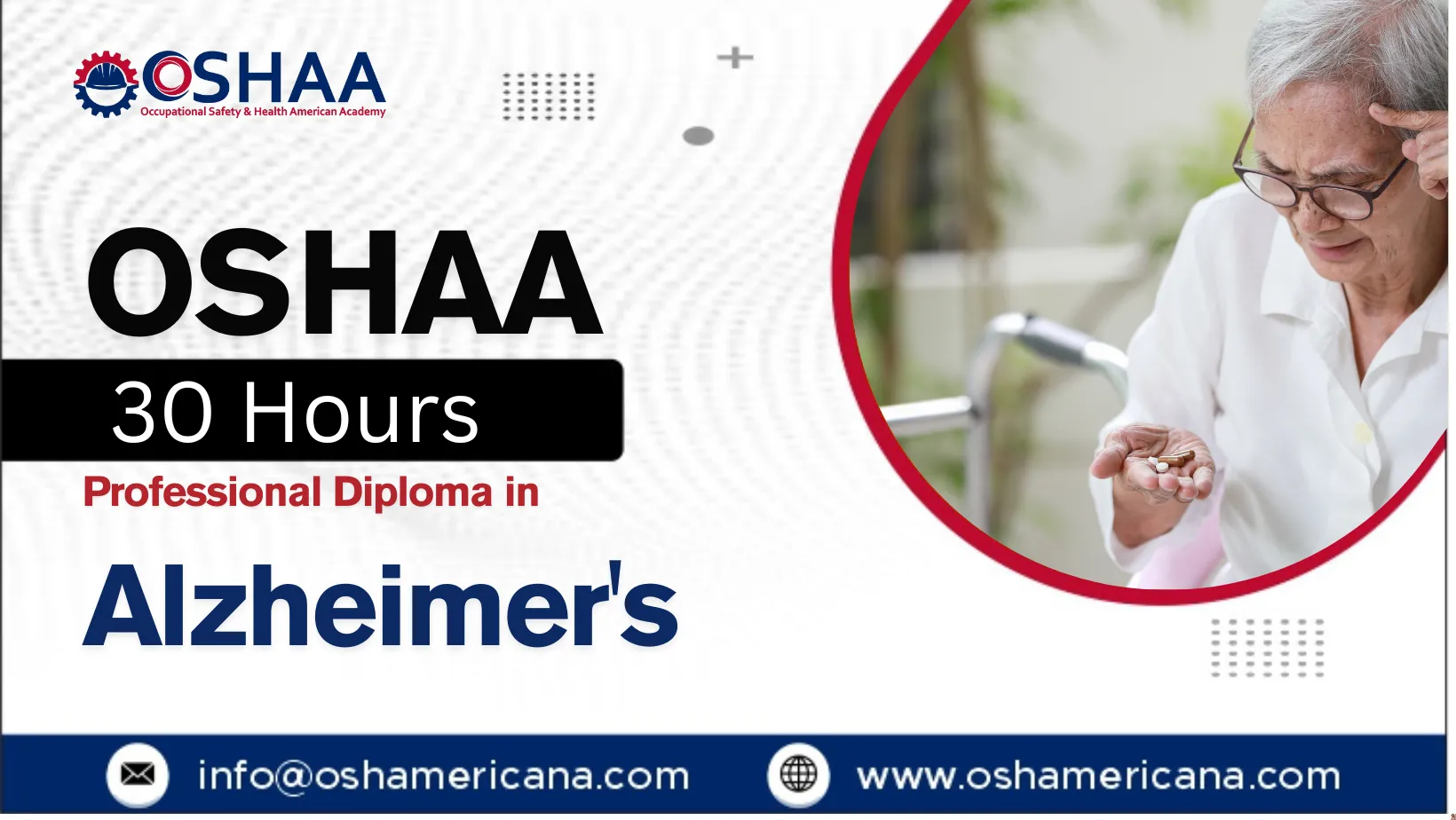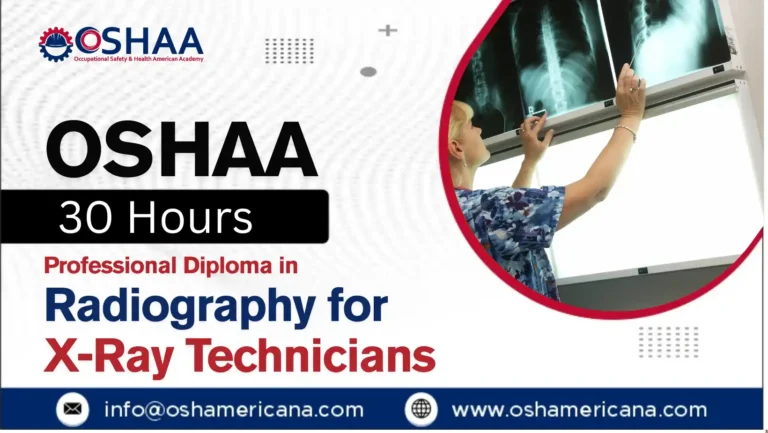The OSHAA 30-Hours Professional Diploma in Alzheimer’s provides participants with essential knowledge and skills to support individuals living with Alzheimer’s disease effectively. This specialised diploma is designed to deepen understanding of Alzheimer’s, a progressive neurological condition that impacts memory, thinking, and behaviour, and to equip participants with practical strategies for care and management.
Alzheimer’s disease affects millions worldwide and presents complex challenges for both those diagnosed and their carers. This course offers participants a comprehensive overview of the disease, including its causes, symptoms, progression, and the impact on individuals and families. Participants explore current best practices in care, communication techniques, and ways to promote dignity and quality of life for people with Alzheimer’s.
The OSHAA diploma is ideal for healthcare workers, caregivers, social workers, and anyone involved in the care or support of people affected by Alzheimer’s. It also benefits those seeking to build a career in dementia care or wishing to enhance their professional qualifications with a respected certification.
Flexible study options allow participants to complete the course alongside their personal and professional commitments, making it accessible and convenient. Upon successful completion, participants receive a recognised diploma from OSHAA, validating their expertise and commitment to improving Alzheimer’s care.
The OSHAA 30-Hours Professional Diploma in Alzheimer’s equips participants with the knowledge, skills, and confidence needed to make a meaningful difference in the lives of individuals living with Alzheimer’s. It is a valuable qualification for anyone dedicated to compassionate, informed care in this important field.
OSHAA 30-Hours Professional Diploma in Alzheimer’s
Study Units
Learning Outcomes
Understanding Alzheimer’s Disease: Causes and Progression (3 hours)
- Explain the neurological basis and causes of Alzheimer’s disease
- Understand how the disease progresses over time
- Identify risk factors and preventive approaches related to Alzheimer’s
Recognising Early Signs and Symptoms (5 hours)
- Identify early cognitive and behavioural indicators of Alzheimer’s
- Differentiate between normal ageing and early-stage dementia
- Understand the importance of timely diagnosis and intervention
The Stages of Alzheimer’s and Behavioural Changes (4 hours)
- Describe the three main stages of Alzheimer’s and their characteristics
- Recognise typical behavioural and psychological symptoms across stages
- Apply strategies to manage common behavioural challenges
Principles of Person-Centred Dementia Care (4 hours)
- Understand the core values of person-centred care in dementia support
- Adapt care approaches to respect individual needs and preferences
- Promote dignity, autonomy, and quality of life in care delivery
Communication Techniques for Supporting Individuals with Alzheimer’s (3 hours)
- Use effective verbal and non-verbal communication strategies
- Address communication barriers caused by cognitive decline
- Foster positive interactions that reduce anxiety and confusion
Managing Daily Living and Personal Care Needs (4 hours)
- Support individuals with tasks such as hygiene, dressing, and eating
- Promote independence while ensuring safety and comfort
- Recognise and respond to changes in daily functioning
Supporting Emotional and Mental Wellbeing (5 hours)
- Understand the emotional impact of Alzheimer’s on individuals
- Provide supportive techniques to reduce stress, agitation, and depression
- Encourage meaningful activities to enhance mental wellbeing
Creating Safe and Supportive Environments (2 hours)
- Identify environmental risks and implement safety measures
- Design spaces that promote orientation and reduce confusion
- Support mobility and independence within care settings
Here are the course benefits for the OSHAA 30-Hours Professional Diploma in Alzheimer’s:
- Gain a comprehensive understanding of Alzheimer’s disease, its progression, and its impact on individuals and families
- Learn to identify early signs and symptoms, enabling prompt support and intervention
- Develop practical skills to manage behavioural changes across the stages of Alzheimer’s
- Apply person-centred care principles to support dignity, independence, and quality of life
- Improve communication techniques tailored for individuals with cognitive decline
- Understand how to assist with daily living activities and personal care safely and respectfully
- Learn strategies to support emotional and mental wellbeing in individuals with Alzheimer’s
- Create safe, supportive environments that reduce confusion and promote confidence
- Enhance your ability to work collaboratively with families and carers in Alzheimer’s care
- Earn a recognised OSHAA qualification to advance your professional development and credibility in dementia care
- Participants working in healthcare, residential care, or community support roles who provide services to individuals living with Alzheimer’s
- Professionals seeking to enhance their understanding of dementia care and improve the quality of support they deliver
- Caregivers and support workers involved in assisting individuals with memory loss and cognitive impairment
- Social care practitioners and mental health workers aiming to develop person-centred approaches to Alzheimer’s care
- Participants interested in gaining a formal qualification to specialise in dementia and Alzheimer’s support
- Anyone committed to delivering compassionate, informed, and practical care for individuals affected by Alzheimer’s disease







